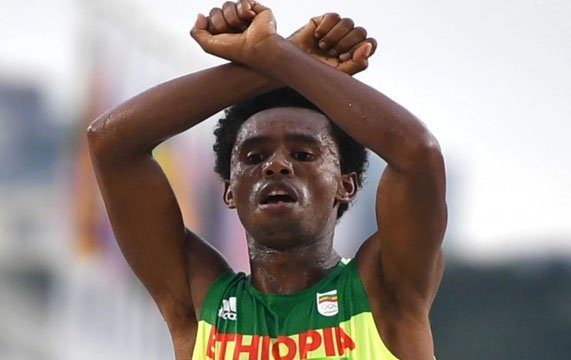The following is a statement from the PEN Ethiopia centre in exile.
TORONTO, Aug. 29, 2016 /CNW/ – Ethiopia’s government is known for suppressing independent voices. It routinely jails journalists, opposition leaders, activists, and peaceful demonstrators. During 25 years of undemocratic rule it has passed oppressive antiterrorism legislation, clamped down on charities and civil society, restricted access to media, and introduced laws that crush dissent. It often labels journalists and opposition figures as terrorists, and accuses civil society groups of conspiring with foreign elements.
The government has silenced nonconformist civil society organizations, including PEN Ethiopia. There are currently no critical media outlets in the country. Instead, the government monitors and manipulates all communications, including mainstream media and the telecom company, and it completely controls the country’s only television station. It has also banned critical websites and media channels and it frequently disrupts Internet connections and mobile networks to restrict the flow of information.
During the last 9 months, government security forces have indiscriminately killed over 700 peaceful demonstrators in the Oromia and Amhara regions, following mass protests that demanded protection for constitutionally guaranteed civil rights. In June 2016 a comprehensive Human Rights Watch report confirmed that between last November 2015 and March 2016 more than 400 peaceful demonstrators were killed, in the Oromia region alone. Amnesty also reports that on August 6 and 7, 2016 97 people were killed (67 in Oromia, 30 in Amhara). Other reports indicate that as many as 60,000 civilians and students have been detained, without due process, in concentration camps in Oromia.
The Oromo and Amhara communities are Ethiopia’s major ethnic groups. Together they account for more than 70 percent of the country’s 100 million citizens. By contrast, the Tigray minority that has held power for the last quarter of a century represents just 6 percent. Although the Constitution protects freedom of expression, human rights, and a multiparty system, the Tigraian-dominated government which controls 100 percent of parliament has consistently violated these rights with impunity.
The government’s failure to address such deep-rooted problems such as media freedom, freedom of expression and the marginalization and suppression of the majority has provoked widespread protests in the Oromia (#OromoProtests) and Amhara (#AmharaProtests) both of which have been covered online as #EthiopiaProtests.
The state’s response to these protests has made it clear that within Ethiopia peaceful dissent will often be met by killings, beatings and torture. Consequently, protests have moved elsewhere as opportunities present themselves.
That is why Ethiopian silver medalist Feyisa Lelisa crossed his hands at the end of the Olympic marathon in Rio de Janeiro on August 21, 2016. Lelisa displayed the Oromo protest sign by crossing his arms above his head, both at the finish line and during the medal ceremony. By doing so, he became a voice for millions of voiceless Ethiopians, even though he was well aware that such gestures are prohibited in sport.
As a civil society organization devoted to promoting freedom of expression, PEN Ethiopia urges the Ethiopian government to open up the spaces for the free exercise of speech in order to remove the need for such desperate actions, as well as their inevitably harmful consequences.


























